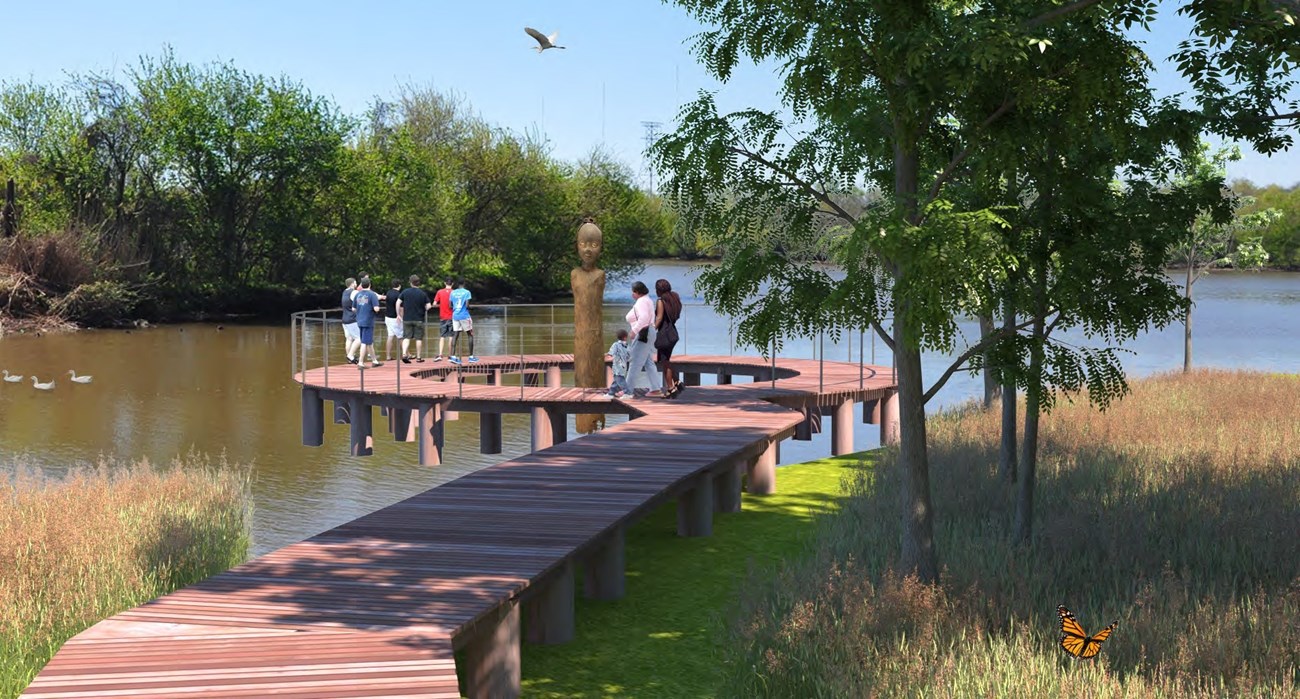Last updated: March 2, 2022
Article
Africatown: From Environmental Injustice to Healing

ALABAMA
In 1860, the Clotilda was the last known slave ship to reach U.S. shores near Mobile, Alabama – 52 years after the United States had banned the import of slaves. On board the ship were captives from the Tarkbar Tribe who went on to establish Africatown, where the native language and cultural traditions from their home in West Africa still remain today.
For decades, the community fished, swam and gathered at the creeks that connect to the Mobile–Tensaw River Delta, until the area transformed into an industrial zone and the water was blocked and polluted by factories. Seeking to reconnect the community to their waterways, the Mobile County Training School Alumni Association asked NPS-RTCA to help Africatown create a water trail and expand access to outdoor recreation opportunities.
In collaboration with landscape architecture students from Mississippi State University, NPS-RTCA worked with residents to design access points and develop a waterfront plan that includes piers, picnic areas and parks. NPS-RTCA engaged the Africatown community in efforts to build support for the plan, identify potential funding sources and strategies for the Africatown Connections Blueway, a water and walking trail network that will highlight cultural and historic sites and connect to the proposed Africatown USA State Park.
